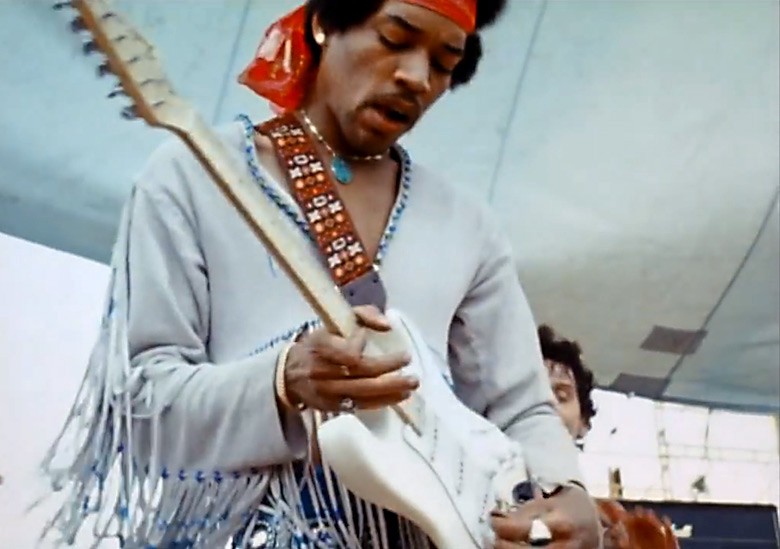“I think perfection is ugly. Somewhere in the things humans make,
I want to see scars, failure, disorder, distortion.”
― Yohji Yamamoto
August
14th was the 50th anniversary of Woodstock. The three-day festival has
been dissected every which way over the decades, from the music, to the
politics, to the reality and falsity of the 60s ethos. Netflix is
streaming Woodstock: Three Days That Defined a Generation as part of the anniversary.
What still bedazzles is the ferocity of Jimi Hendrix’s version of The Star Spangled Banner. It captures beauty, pain, war, chaos and distortion. His rendition is polarizing. Plenty of folks are reverential of the power, another group despises the noise. There’s glimmers of delicacy, hope and inspiration. Like
life, it’s raw and amplified, guns and bombs bursting in air, sirens
wailing, nights filled with screams, and deep, bellowing groans. This is America, and played loud by a black man who died too early at 27, something that happens often in our current climate. The song captures our cultural discord perfectly. America
is divided, ain’t many Democrats and Republicans chortling over their
differences while buying another round. No, too often we’re eviscerating
each other with anger. Hendrix’s sonic onslaught mirrors what
scripture says about this world: there is beauty, love and elegance, but
mirrored with lawlessness, war and piercing decay of morality.
Before
we lump Hendrix into some hippy-dippy acid trip, or dismiss him as a
overwrought drug addict, remember he enlisted in the army, and served
with the 101st Airborne Division. He had a unique perspective of both
sides of the coin, before he went on to incinerate the guitar landscape. The faces in the crowd are mesmerized (and possibly high), same as today when we hear this timeless masterpiece. The Whitney Houston version
at the 1991 Super Bowl is extraordinary in its purity and inspiration.
But it’s almost too perfect for me. Hendrix captures the truth of life.
We’re messy, and in 2019, 50 years after he took the stage, people are
still messy.
When we look back at the nostalgic pics of Woodstock, we realize it’s not nostalgia. With Lollapalooza,
Coachella and Burning Man, every generation places their hope in music
changing the world. The question is the same: can it? Of course! Nothing charms the soul the way thoughtful lyrics and harmonized instruments are able. Today
is no different. The same way Hendrix, The Who and Ritchie Havens sang
about freedom then, U2, Kendrick Lamar and Childish Gambino are pushing
their own version of freedom through rebellion.
Guess
what, the original rebel pushing against “the man” keeping him down was
that fella up there on the cross. Yep, Christ came and shook the earth
as loud as Hendrix and his Marshall stacks. He gave a message to the
establishment that resonates today, and will for all time. True love
does exist, and there is no greater love than laying one’s life down for
one’s friends (John 15:13).
John Eldredge captures a version of Christ I prefer in Beautiful Outlaw.
“He is the playfulness of creation, scandal and utter goodness, the generosity of the ocean and the ferocity of a thunderstorm; He is cunning as a snake and gentle as a whisper; the gladness of sunshine and the humility of a thirty-mile walk by foot on a dirt road.”
Eldredge is right, Christ is amplified power, He’s love at the highest level, more visceral than the hardest punch to the gut. However, when you first experience His love, you won’t double over in pain, you’ll fall to your knees in devotion, like a favorite song, permanent in your head.
Hendrix created four minutes of controlled anarchy that stretched boundaries for a generation of music fans. Christ brings a message of love that’s disrupted billions of hearts for centuries past and future.
See ya next time. ML

